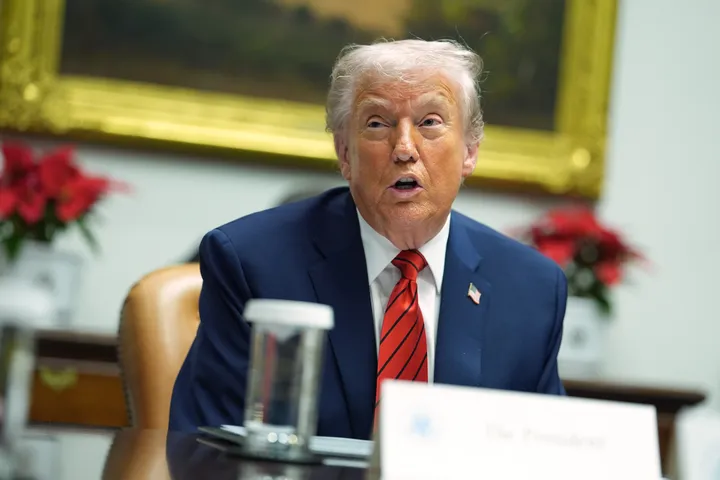US President Donald Trump announced his decision to recognise Jerusalem as Israel’s capital and move the US embassy there on December 6. Leaders from the Middle East and Europe, even the Pope, have openly opposed the decision.
The move is a violation of international law, and goes against UN Security Council resolutions.
In solidarity with Palestinians, mass crowds gathered in protest in front US and Israeli embassies worldwide after Friday prayers last week. At least two Palestinian protesters were killed by Israeli forces, and dozens of others were injured.
For Palestinians, the decision is neither simply a matter of an embassy building in Jerusalem, nor about the concerns regarding Trump’s peace plan for Palestine, analysts say. It is the fact that the decision itself will show its impact which will determine the future of the city, even before being put in force.
“In fact, the decision of moving it, actually has an equal impact as the moving of the embassy. It doesn't matter if they [the US] move it now or postpone,” an expert on the Israeli-Palestinian conflict and journalist, Ayse Karabat, told TRT World.
Moving an embassy from one place to another is a process that takes at least a couple of years. But two countries, the Philippines and the Czech Republic already announced that they would consider moving their embassies to Jerusalem shortly after Trump formally announced the decision.
“The situation could affect the Palestinians looking at how many countries will follow the US’s lead on the Jerusalem decision,” Abdullah Marouf, an assistant professor from 29 Mayis University told TRT World.
The status of holy sites in Jerusalem
Marouf says, as more official support Israel finds after the US, more concerns will arise over the status of Jerusalem, and over the issues around it, which has caused conflict between Israel and Palestine for decades—the lives of Palestinians in the city, and the holy sites which are sacred to all Abrahamic religions, Christianity, Islam, and Judaism.
“If Jerusalem is being recognised by more and more countries in the world as a whole one city, and as one capital of Israel, it means Masjid al Aqsa will no longer be up to the status quo and Israel can do whatever it wants with the mosques,” Marouf says.
The holy sites in East Jerusalem have been controlled by Jordan since 1967, when Israel occupied that part of the city. The status of Palestinian citizens in the divided city then undermined to “permanent residents”—and their identification can easily be revoked by Israel at any time.
Marouf says, if the US influence grows bigger, it may lead to Palestinian residents “no longer becoming legitimate residents of Jerusalem for international law” as well.
“Israel doesn't consider these people as Palestinians. It considers them as Jordanians living inside Israel, because of the situation after the Six-Day War and status quo; so, I think this would affect people if it goes bigger, with more countries following the US lead,” he says.
“But what happens next actually depends on the people in the street, not in the Palestinian Authority or the resistance movements or political parties,” Marouf adds.
No more trust in the US for a peace process
As worldwide reaction still continues, even though Palestinian leader Mahmoud Abbas is still receiving major financial support from the US, no parties in Palestine are either talking about bringing back Trump’s peace plan, or of a two-state solution.
Trump declared himself as the mediator to bring peace to the Middle East and appointed his son-in-law and advisor Jared Kushner in January to proceed with the peace talks between Palestine and Israel—a move taken cautiously by Palestinians.
Palestinians were not eager about the new US-led peace plan, although they proceeded with their internal peace efforts with Egypt’s mediation.
In October, Hamas agreed to sign a reconciliation deal with rival Fatah, who controls the West Bank, leaving the administration of the Gaza Strip to the Fatah-led Palestinian Unity Government after 10 years of Hamas control.
The agreement with Fatah, the largest political party of the PalestineLiberation Organization (PLO), has been seen as hope towards the peace process, as the PLO has been defending a two-state solution.
Now, both parties in Palestine believe that the US not only proved not to be an honest broker in the peace talks, but also sabotaged the peace process it introduced.
But Karabat says the leaked details about Trump’s plan was already revealing that it was not intended to improve lives of Palestinians, but it was “undermining the rights of Palestinians as it was suggesting that right of return of Palestinian refugees shouldn't be mentioned at all and the illegal Israeli settlements should remain over there.”
“Kushner and the friends in the region, Saudi Arabia, in particular, were forcing Palestinians to accept this so-called outrageous peace plan,” Karabat says.
“It wasn't a peace plan, and even if it was, it's completely dead now.”
























